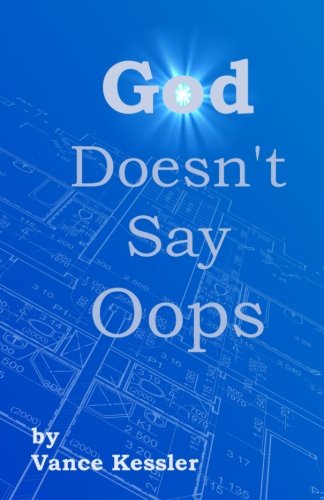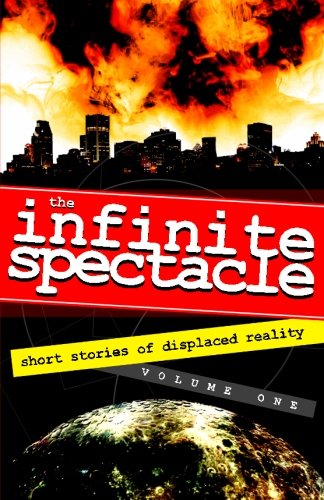One Simple Idea, Revised and Expanded Edition: Turn Your Dreams into a Licensing Goldmine While Letting Others Do the Work, by Stephen Key
How a suggestion can be obtained? By looking at the stars? By seeing the sea as well as taking a look at the sea interweaves? Or by checking out a publication One Simple Idea, Revised And Expanded Edition: Turn Your Dreams Into A Licensing Goldmine While Letting Others Do The Work, By Stephen Key Everybody will have specific characteristic to gain the inspiration. For you who are passing away of publications and still get the motivations from publications, it is truly excellent to be below. We will show you hundreds collections of guide One Simple Idea, Revised And Expanded Edition: Turn Your Dreams Into A Licensing Goldmine While Letting Others Do The Work, By Stephen Key to review. If you like this One Simple Idea, Revised And Expanded Edition: Turn Your Dreams Into A Licensing Goldmine While Letting Others Do The Work, By Stephen Key, you can also take it as your own.

One Simple Idea, Revised and Expanded Edition: Turn Your Dreams into a Licensing Goldmine While Letting Others Do the Work, by Stephen Key

Ebook PDF One Simple Idea, Revised and Expanded Edition: Turn Your Dreams into a Licensing Goldmine While Letting Others Do the Work, by Stephen Key
With must-have updates, a new edition of the bestselling method that shows how anyone can turn their one simple idea into millions – without lifting a finger!
Stephen Key is an award-winning inventor who has licensed more than 20 product ideas. In 2011, he shared the secrets to his success in the bestselling book One Simple Idea. Since that time, many changes have occurred in the entrepreneurial world.
One Simple Idea, Revised and Expanded Edition has been revised and updated to reflect current trends and practices in the industry. In addition to teaching readers how to turn their ideas into marketable products that companies will want to license, Key expands upon his cutting-edge product development, sales, and negotiation strategies, making note of the new opportunities and technologies available to creative people today. The book also features real-life success stories from people who have used the author’s strategies.
One Simple Idea, Revised and Expanded Edition: Turn Your Dreams into a Licensing Goldmine While Letting Others Do the Work, by Stephen Key
- Amazon Sales Rank: #16797 in Books
- Published on: 2015-10-06
- Released on: 2015-10-06
- Original language: English
- Number of items: 1
- Dimensions: 9.10" h x 1.20" w x 6.50" l, 1.10 pounds
- Binding: Hardcover
- 288 pages
About the Author STEPHEN KEY is the founder of the coaching business inventRight, has successfully licensed more than 20 simple ideas in fields as diverse as the toy, beverage, athletic, music, and drug industries. Collectively, his creations have sold more than halfa billion units and generated billions of dollars of revenue. Along the way, they have enabled him to design the Licensing Lifestyle of his dreams, which includes living in Lake Tahoe and traveling around the world for months at a time with his family, all while managing his business affairs merely with an iPhone. His course has attractedmore than ten thousand students around the world whom he teaches to do the same.

Where to Download One Simple Idea, Revised and Expanded Edition: Turn Your Dreams into a Licensing Goldmine While Letting Others Do the Work, by Stephen Key
Most helpful customer reviews
163 of 170 people found the following review helpful. An essential guide to getting paid for your ideas! By Chris Jaronsky I really like this book because it has opened up a whole new avenue for me, and showed me with simple descriptions all the areas where I was doing it wrong. I almost felt stupid that I did not know about provisional patents. I thought the only way to protect your ideas was the traditional patent route, and the 10-20 thousand dollars that route can cost. I did not know that a simple provisional patent, that can be filed for $110 would give me even more protection than a patent the first year I filed it. And that I could get a company to pay for my patent when they license my idea! How can you not love this book?Stephen Key walks you through the steps of taking your idea from birth all the way through getting some company to send you royalty checks every quarter. You come up with the idea, then follow the steps laid out to getting paid for that idea. You do not need to have really brilliant ideas either. A simple product improvement can be licensed. A manufacturing change can be licensed. A procedure change can be licensed. The list is pretty endless in regards to what you can do. Can you take an existing product, change it slightly, and use it for some other non-related use? Yes you can, and you can get paid to do it!Here is how this book will help me. I started writing ideas down in a small five inch notebook on may 4, 2004. I date all the ideas, my memory is not that good. I have 7 of these notebooks filled with ideas, changes, upgrades, etc. I take notes on a voice recorder in my car because ideas always pop in my head while I am driving. I know a lot of people get ideas in the shower, but I was on a nuclear submarine a long time ago and got in the habit of taking very fast showers because we can't waste water. So my shower time is very fast and focused, no time for ideas, but driving really works well for me. The positive side of that experience is that many of my ideas relate to saving resources.I looked through all 7 books this week. My old thinking told me many of these ideas need an expensive, and time consuming patent. Now that I know about provisional patents I am looking at these ideas in a whole new light. I came across 19 ideas that I can follow up with right now. Then there are many more that need some more thought, and quite a few that are already on the market. Someone that knew how to market them beat me to the punch. That will not happen again.According to Stephen, licensing is a numbers game. You will not get every idea licensed, it is better to be prolific. With the details he gives in this book I am confident I can research the market, protect my idea, target specific companies, create a "sell sheet" and benefits statement, and approach my targeted companies to start discussing a licensing partnership.If you have ideas that you think can make money, you need to read this book. I normally read a book once, but I have read and reread many chapters in this book. It is an excellent guide which I am positive will make a difference in my life. I look forward to one day meeting with Stephen and thanking him in person.
78 of 85 people found the following review helpful. "Invent Yourself Out Of A Day Job One Idea At A Time" By Bradley Bevers One Simple Idea is a practical, real-world guide that will help you take your ideas and get them to market with minimum investment of time and money. It is a great read that motivates the creative genius inside to think outside of the box, dream big, and get paid for it. One Simple Idea is a 5 star book and a steal for anyone interested in turning ideas into cash.Part 1 focuses on how nice it will be once your ideas pay off and you are earning extra income."Find Your Million-Dollar Idea" (Part 2) really kicks off the valuable information in the book. This section offers great advice on what makes an idea valuable and marketable. Key emphasizes simplicity and how small ideas can make big money. While this part is good, I think it's also the weakest section in the book. Key only offers three creative thinking methods to come up with ideas . . . each just a paragraph long. He focuses on other idea generation methods that are simpler, but creative thinking techniques can unlock tons of great ideas in my experience. Going in depth here would make this book too long, but it would have been nice to include some additional recommendations for idea generation. For a book that is really strong in this area, check out Thinkertoys: A Handbook of Creative-Thinking Techniques (2nd Edition). It makes a great companion to One Simple Idea: Turn Your Dreams into a Licensing Goldmine While Letting Others Do the WorkAlso in Part 2, Key gives an "idea litmus test" (70-73) to measure the ideas that you dream up. This is a great tool and a step that could be easily missed."Prove Your Idea" (Part 3) offers real world techniques to prove the viability of your idea. The information in this section is easily worth the price of ten copies of the book. Key's thoughts on prototype development (105-110) remove financial and fear barriers from the inventor's equation. Using his methods anyone can test markets with a little research and create great prototypes of their invention with minimal investment."Protect Your Idea" (Part 4) is the most valuable section in the book. If Part 3 saves the price of ten copies, Part 4 could save the price of a thousand copies. The first chapter details Key's method of protection through patents. His thoughts on this (not to mention the additional information on StephenKey.com) could save an inventor thousands of dollars, if not tens of thousands. Getting advice like this from an entrepreneur is more valuable than advice from a patent attorney.The second chapter in this section details the best method to protect yourself when presenting your idea to others. Again, the advice is not just theoretical. Key spells out exactly what to look for and what to add to your agreements (133-134)."Prepare to Pitch Your Idea" (Part 5) details how Key has licensed his products. His two-step method is simple, easy-to-follow, and a great idea. Anyone who has evaluated products of any kind will appreciate his approach. It will give you success more frequently and limit your failures to substance, not style."Submit Your Idea to Potential Licensees" (Part 6) details methods to do just that. Key gives techniques to narrow down your list of companies and even includes access to a part of his site that will give you the names of more than 1,300 companies that license products through open innovation (see page 173). Chapter 17 then details what to do once you narrow your list of companies down. Key's advice on cold-calling is practical and very helpful. This section could easily be applied to a wide variety of businesses. Key has obviously made many thousands of calls over the years and presents methods that will help you secure a licensing agreement."Bring Your Ideas to Market" (Part 7) gives a brief overview of how to negotiate and cut your first licensing deal. While there is not enough information in this section to answer all your questions, it is a great start. It is helpful to know what the going rate for royalties on inventions is, and Key does not hold back any information.Be sure and check out the last two pages of the book for Key's 10 Steps from Idea to Market (222-223). He references the steps a couple of times throughout his book, and finally gives them all in one place at the very end."Appendix: Valuable Resources" is the last part of the book. The only thing better than a great book is a great book that points you in the right direction to learn more. Most of the resources on this page direct you to a section of Key's website. The advice is valuable, though the page on his site could be better organized and indexed with hyperlinks. Also, the recommended business book section is weak with only two books recommended. However, this could all be updated quickly and the resources themselves are very valuable.*Pros- Excellent advice. Real-world help, not conceptual theory.- Will help you take your ideas to the marketplace- Additional resources and the value added from this book outweigh the cost of the book a thousand times over*Cons- Weak on the creative thinking & idea generation sections- References other chapters throughout the book. Helpful if you read a chapter here and there, annoying if read cover to cover- Uses same examples too often. I know much more than I want to about Michael Jordan's Wall Ball now.If you are interested in a book that can actually deliver on its promise to make you money with minimal investment, this is a great one. It is refreshing to read a book that gives real advice, has very little theoretical filler, and clocks in at less than 240 pages. It is a book you will read through once and refer too often when you come across a great idea that has market potential. Buy it and, as two of Key's students say on page 151, "Invent yourself out of a day job one idea at a time."
128 of 149 people found the following review helpful. Not life changing By Il So I read this book about 5 months ago. After I finished it, I started writing a review but got sidetracked. I was just looking up new books to read and saw that this book had 111 undeserving 5 star ratings, so I am now re inspired to finish my review and caution others. Unfortunately I can't remember all of the things I wanted to say about it, but I do remember finishing the book and being completely unsatisfied. This review is based off what I could remember and the notes that I took.I had a few a few ideas that I was hoping to bring to the marketplace. With all of the 5 star reviews I thought for sure this book would be enlightening and the "key" to my shortcomings. Unfortunately I was completely wrong. The only way this book can be that great, is if you've never heard of provisional patents or that you can license an idea. I was not that familiar with licensing, so I could appreciate that concept alone. Basically you come up with an idea, file a provisional patent and present the idea to a licensing company who handles all of the production, marketing and sales. You receive a royalty from the sales and you now have more time to license more ideas. If you've never heard of provisional patents, look it up.Idea Lab's comment about the book's repetitiveness is completely accurate. It's like a 7th grade essay that repeats the same points in the same manner to drive a point home. Here's a list of the redundancies you'll read:-The most marketable ideas are usually simple ones; small improvements to existing technology-He has 20 licensed products under his belt-The conventional way of developing and licensing an idea is dumb and unnecessary, i.e. spending thousands of dollars and tons of time on creating prototypes and patents-He developed the rotating label-It's a numbers game; generate a lot of ideasI actually found it insulting that he would repeat these things along with a few others as if I never read any of the previous sections or understood some of the most simple concepts.The strongest section was chapter 17 on actually contacting potential licensees. It had some insightful points on the nuances of communicating and presenting to these companies. Overall though, the book was a waste of time. It had a few good ideas, but too much filler and repetitiveness to be worth the read. As long as you understand that you don't need a prototype and patent and that your idea can be licensed, skip this book and learn how to make a provisional patent. I've found this to be the real challenge.
See all 388 customer reviews... One Simple Idea, Revised and Expanded Edition: Turn Your Dreams into a Licensing Goldmine While Letting Others Do the Work, by Stephen KeyOne Simple Idea, Revised and Expanded Edition: Turn Your Dreams into a Licensing Goldmine While Letting Others Do the Work, by Stephen Key PDF
One Simple Idea, Revised and Expanded Edition: Turn Your Dreams into a Licensing Goldmine While Letting Others Do the Work, by Stephen Key iBooks
One Simple Idea, Revised and Expanded Edition: Turn Your Dreams into a Licensing Goldmine While Letting Others Do the Work, by Stephen Key ePub
One Simple Idea, Revised and Expanded Edition: Turn Your Dreams into a Licensing Goldmine While Letting Others Do the Work, by Stephen Key rtf
One Simple Idea, Revised and Expanded Edition: Turn Your Dreams into a Licensing Goldmine While Letting Others Do the Work, by Stephen Key AZW
One Simple Idea, Revised and Expanded Edition: Turn Your Dreams into a Licensing Goldmine While Letting Others Do the Work, by Stephen Key Kindle











